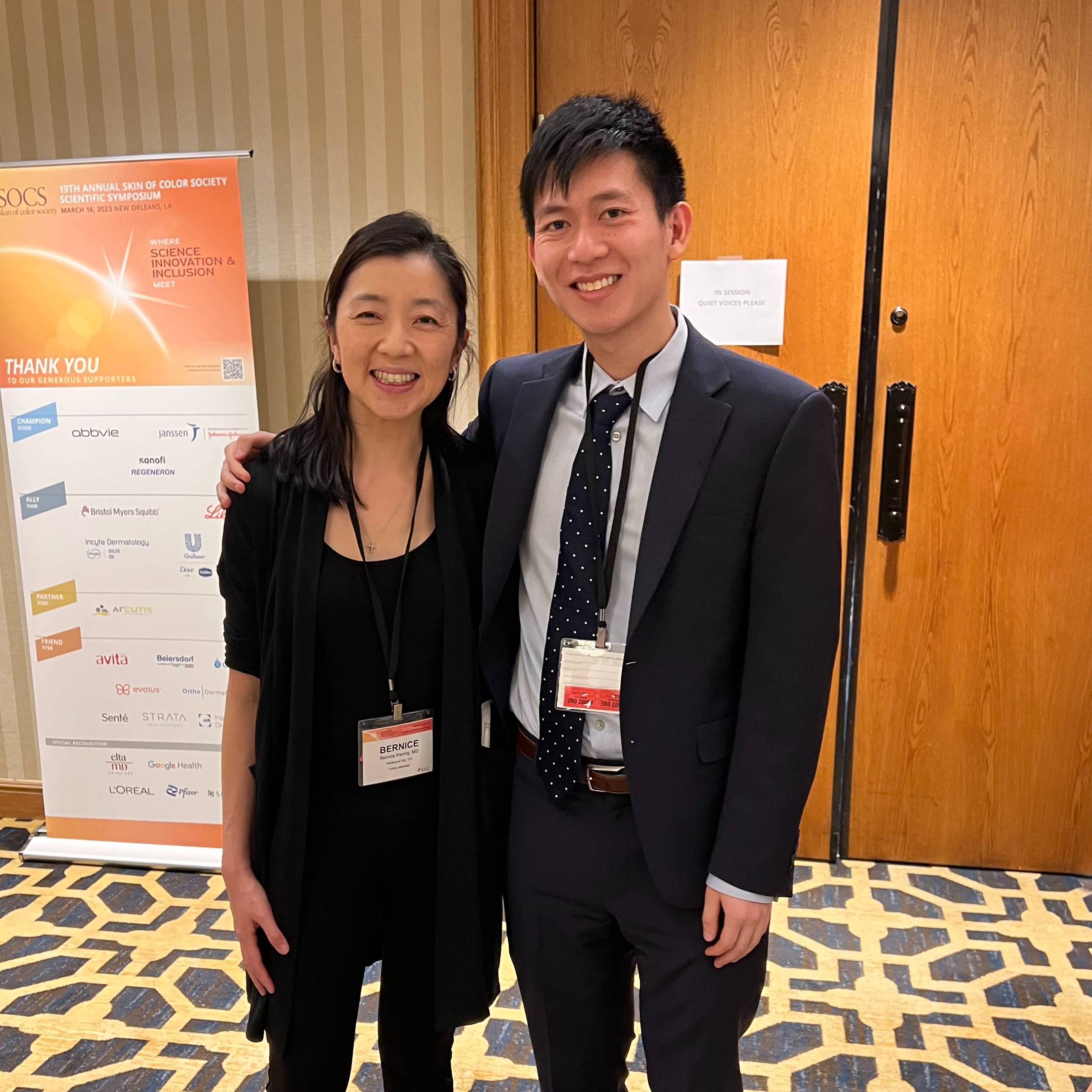
Dr. Bernice Kwong with mentee Alexander Wong
I am so grateful that I was able to participate in the SOCS Mentorship program with Dr. Bernice Kwong. Despite her incredibly busy schedule and many responsibilities, Dr. Kwong and I met every month to discuss skin of color topics specifically in supportive oncodermatology. With her mentorship, we came up with research projects that she noticed disproportionately impacted her skin of color patients in clinic. She taught me incredibly valuable lessons on how to turn important clinical questions and translate that into action through conducting research to answer those questions. We are still actively working on three projects, and she has been so supportive in every step of the way, from IRB development to manuscript drafting. I had the opportunity to spend a day observing her in clinic and it was so clear to me how compassionate she was towards her patients, and how she considered her patients’ various skin tones in the context of diagnosing and managing their conditions. We have also discussed various DEI issues and how conditions that disproportionately affect SOC patients are more likely to be brushed off in academia, and how we can combat these disparities affecting the most underserved patients. This mentorship program was also during my clerkship year and board exams, and I always felt like Dr. Kwong was someone I could confide in when I was struggling, and someone who I could celebrate my triumphs with as well. I feel like the luckiest mentee to spend time with someone incredible like her. We have enjoyed working with each other so much that we applied for the SOCS Observership Grant to continue our work together, and I am so excited that I will get the spend an entire month with Dr. Kwong and her team at Stanford. Thanks to the SOCS I have a lifelong mentor who I know will support me in succeeding personally and professionally, and I hope I can become a brilliant and caring physician like her who cares for the most vulnerable patients.







